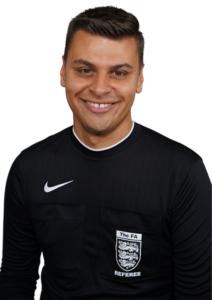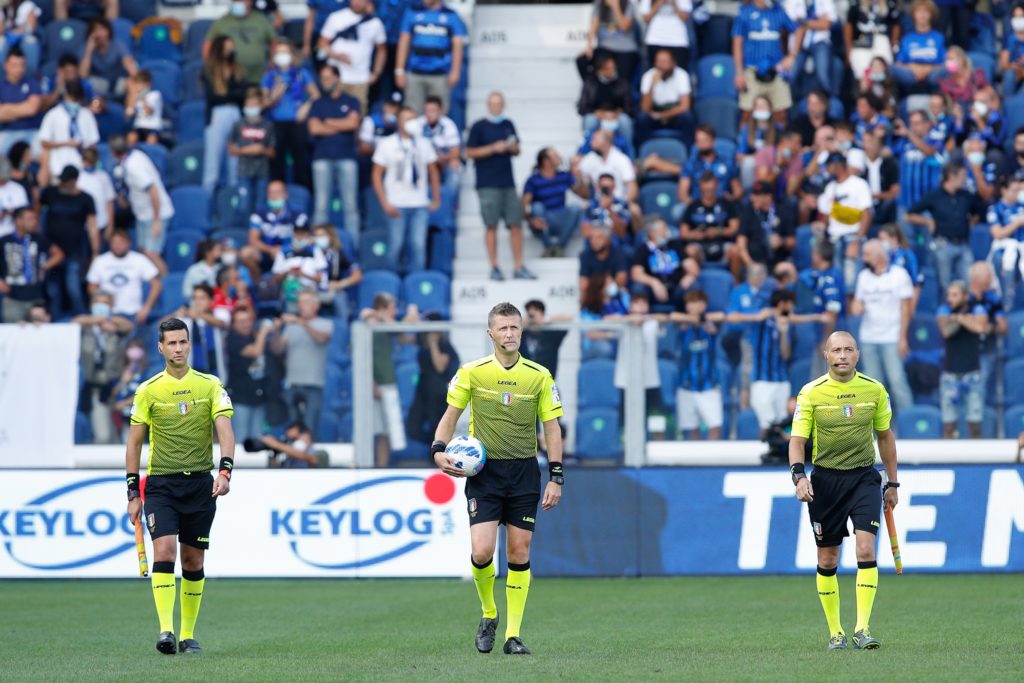Do you ever think, “Does visualisation even work?” Just what is all this hype about visualisation?
Firstly, have you ever performed at your peak when you catastrophised, thought negatively, expected the worst, and had images of yourself failing out in the middle?
Definitely not! When you expect the worst, you often get the worst. It is referred to as a self-fulfilling prophecy.
When a referee tells himself, “I am probably going to get a key match decision (KMD) wrong today”, as they’re about to walk on to the field of play, what is the most likely result?
Probably, making an error on a KMD. After all, you are fostering failure by creating images in your mind of making mistakes.
What would you predict when an assistant referee continuously sees herself missing an offside?
Again, most likely, the assistant referee will fail to flag as the attacker runs through. Not only is she imagining failure, but she is also mentally training herself to fall.
Anything an official repeatedly says, sees or does, increases the likelihood of that event happening.
However, you can foster positive results by altering your self-talk and internal images.
Visualisation is the best strategy to create positive mental images and train your brain to repeat what it sees. In other words, you can achieve refereeing success by rehearsing positive outcomes in your mind.
Visualisation, Also Known as Guided Imagery
Visualisation is the process of giving yourself a pre-designed script, then performing that scenario in your mind.
Just as physical skills are refined through repetition, mental repetitions enhance physical performance. In both cases, the more repetitive training you put in, the more likely you will achieve the desired result.
So To Answer The Original Question, “Does Visualisation Work?,” The Answer Is, Without A Doubt, Yes!
In fact, a great many Olympians give credit to visualisation for their success.
United States National Football League players have also included mental rehearsal into their training regimes.
Miami Dolphins quarterback Tua Tagovailoa spends hours before a game visualising pre-snap calls and post-snap movements.
Even before most players arrive at the stadium, Tagovailoa is prepping by simulating dropping back, visualising reading the field, and throwing the ball to a receiver with pinpoint accuracy.
Tua explained his mental ritual and the benefits of mental rehearsal:
“Mental reps. All the little details. If we run this play, what can stop that play? If we run this play, what can stop that play? It’s going through my entire progression.” – Tua Tagovailoa, Quarterback, Miami Dolphins
If you are not doing the mental work, you are unable to realise your potential. Take the lead from Tua Tagovailoa; continually practicing visualisation gives you the best chance to referee at your peak.
Talent only gets you so far in officiating. Hard work drives you forward. However, it’s the mental work that finishes the race and beyond.
You don’t have to spend hours and hours visualising your performance to reap the benefits of mental rehearsal.
Commit to 10 minutes a day before bedtime to visualise successful performances. Try to use a first-person perspective when you do.
At The Third Team I work individually and in collaboration with different professionals where I have developed workshops and 1-2-1 sessions associated with Resilience and Mental Toughness Development to help referees. The workshops and 1-2-1 sessions are interactive, where referees are encouraged to open up and share their experiences to help themselves and each other.
Feel free to contact me if you’d like to know more about my workshops or 1-2-1 sessions and how I could help you or your officials.
Best Wishes,

Nathan Sherratt
Referee Educator & Managing Director of The Third Team

Nathan Sherratt
Nathan Sherratt, Referee Educator, Resilience Trainer and Managing Director of The Third Team. A Mental Toughness Practitioner based in County Durham, North East England.

